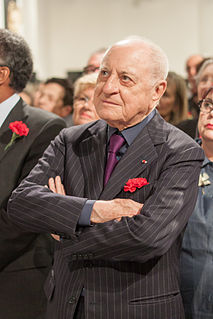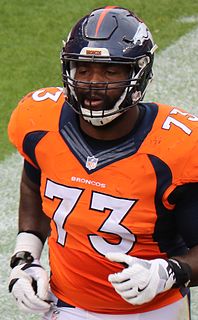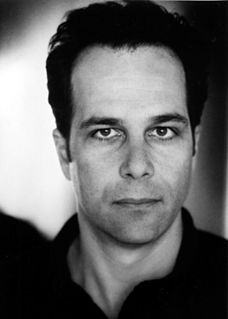A Quote by James Branch Cabell
For although this was a very heroic war, with a parade of every sort of high moral principle, and with the most sonorous language employed upon both sides, it somehow failed to bring about either the reformation or the ruin of humankind: and after the conclusion of the murdering and general breakage, the world went on pretty much as it has done after all other wars, with a vague notion that a deal of time and effort had been unprofitably invested, and a conviction that it would be inglorious to say so.
Quote Topics
About
After
Although
Been
Both
Both Sides
Bring
Conclusion
Conviction
Deal
Done
Effort
Either
Employed
Every
Failed
General
Had
Heroic
High
Humankind
Invested
Language
Moral
Most
Much
Notion
Other
Parade
Pretty
Principle
Reformation
Ruin
Say
Sides
Somehow
Sort
Time
Vague
Very
War
Wars
World
Would
Would Be
Related Quotes
In a general view, there are few conquests that repay the charge of making them, and mankind are pretty well convinced that it can never be worth their while to go to war for profit's sake. If they are made war upon, their country invaded, or their existence at stake, it is their duty to defend and preserve themselves, but in every other light, and from every other cause, is war inglorious and detestable.
When you say that after World War I there was a pandemic that killed more people than the war itself, most will say: "Wait, are you kidding? I know World War I, but there was no World War 1.5, was there?" But people were traveling around after the war, and that meant the force of infection was much higher. And the problem is that the rate of travel back then was dramatically less than what we have nowadays.
There was an exchange between me and Andy Warhol. We met, we liked each other, we appreciated each other. He would come to us for Easter in Marrakech. In September we would meet up in Venice. And every time I went to New York I would spend some time with him at the Factory, where we would have dinner together. He's a man that I admired deeply. He shook up the notion of painting - not as much as Marcel Duchamp had done, but he was part of the same general movement. And then we both admired art deco.
Everybody wants to win. You know, nobody ever wants to feel like they lost. That was probably one of biggest lessons I learned. You don't want to be that guy sort of banging fist on table telling somebody what you want. People want to feel like they had enough value on both sides that the deal worked out on both ends. I had an incredible team in place that really supported me and I would not have been able to get the deal done had it not been for those people.
I know I'm not a man-about that much I'm very clear, and I've come to the conclusion that I'm probably not a woman either, at least not according to a lot of people's rules on this sort of thing. The trouble is, we're living in a world that insists we be one or the other-a world that doesn't bother to tell us exactly what one or the other is.
You find as you look around the world that every single bit of progress in humane feeling, every improvement in the criminal law, every step toward the diminution of war, every step toward better treatment of the colored races, or every mitigation of slavery, every moral progress that there has been in the world, has been consistently opposed by the organized churches of the world. I say quite deliberately that the christian religion, as organized in its churches, has been and still is the principle enemy of moral progress in the world.
We have heard much about the poetry of mathematics, but very little of it has as yet been sung. The ancients had a juster notion of their poetic value than we. The most distinct and beautiful statements of any truth must take at last the mathematical form. We might so simplify the rules of moral philosophy, as well as of arithmetic, that one formula would express them both.
Every generation has its war. I have just been reminded of mine. It ended in 1989, 43 years after it began, the longest war Britain fought and certainly the most expensive. Its climax was total victory. Yet there was no parade, no medals, no colours hung in cathedrals. The Cold War saw no battles and cost almost no blood. Where there is no blood there is no glory and hence no history. Asked What did you do in the war, Daddy?, I could say only that I paid my taxes and left it at that.
I'm not pro-war. But I think war has been the dominant condition of humankind, and peace has been the anomaly - certainly sustained periods of peace that profit great masses of people - and I think war has worked, even awful hellish wars: worked to staunch fascist aggression in Europe, worked to preserve the Union after secession in the United States, etc. Not always, maybe not often, but to say never is to reject history in favor of a wishful unreality.
What if I had been born during a war and I lived in an occupied city, and people were being taken out and shot every day? Everything would be different - even after the war ended, my future would be very different. Look at what these poor people in Aleppo are going through. The children, the ones who survive, are going to be absolutely altered by what they live through, and you and I, luckily, have never had to deal with that.
The Philippines and the U.S. have had a strong relationship with each other for a very long time now. We have a shared history. We have shared values, democracy, freedom, and we have been in all the wars together in modern history, the World War, Second World War, Cold War, Vietnam, Korea, now the war on terrorism.






































